The following special lectures are open to all TMS2025 meeting registrants, but many of the events listed below require a ticket to receive a meal. You can add a ticket to an existing registration or purchase one when you register for the conference.
All event tickets must be purchased by February 14.
Luncheon Lectures
Structural Materials Division (SMD)/Functional Materials Division (FMD) Luncheon
Featuring Talks by the 2024 FMD and SMD Young Leaders Professional Development Award Recipients
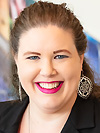
Campbell
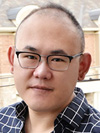
Cao

Gu
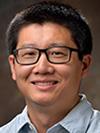
Li
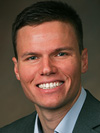
Naleway
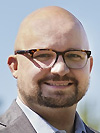
Sims
Speakers
-
Anne Campbell, Oak Ridge National Laboratory
-
Changhong Cao, McGill University
-
Grace Gu, University of California Berkeley
-
Ling Li, University of Pennsylvania
-
Steven Naleway, University of Utah
-
Zachary Sims, Small Business Consulting Corporation
Date: Monday, March 24, 2025
Time: Noon to 2:00 p.m.
Location: MGM Grand Conference Center, Room 151
Cost: $75 to receive lunch; purchase your ticket through the TMS2025 registration form. (You may attend the lecture—without lunch—at no cost.)
Extraction & Processing Division (EPD)/Materials Processing & Manufacturing Division (MPMD) Luncheon
 Fang
Fang
Zhigang Zak Fang, University of Utah
Lecture Title: "Metallothermic Reduction of Reactive Metals--Seeking Alternative Reaction Pathways Toward Sustainable Metallurgy"
Date: Tuesday, March 25
Time: 1:00 p.m. to 3:00 p.m.
Location: MGM Grand Conference Center, Room 151
Cost: $75 to receive lunch; purchase your ticket through the TMS2025 registration form. (You may attend the lecture—without lunch—at no cost.)
About the Presentation
Direct reduction of metal oxides in minerals by carbon is the most common approach for producing primary metals, including iron, which significantly contributes to carbon emissions by the industry. Producing reactive metals, such as Ti, Zr, Nd, and other rare earth elements, is even more energy and carbon-intensive on a unit mass basis. A clear trend in the research community is to use electrochemical approaches to replace carbothermic reduction. Another common approach in the metallurgical industry but one that is less recognized in today’s research community is thermochemical or metallothermic methods. For instance, Mg is a common, relatively low-cost reducing agent that can be used for metallothermic reductions. However, some metal oxides, such as Nd2O3, cannot be directly reduced by Mg. In another case, TiO2 can be reduced by Mg, but the industry uses the Kroll process, which reduces TiCl4 using Mg, where TiCl4 is produced by the chlorination of concentrated titanium ore. The carbothermal chlorination and the Mg reduction of TiCl4 processes are highly carbon- and/or energy-intensive. This presentation explores alternative reaction pathways by which the reactive metals can be produced without relying on carbon. We studied the magnesiothermic reduction of reactive metals such as Ti and Nd to illustrate how alternative reaction pathways can lead to what is seemingly thermodynamically impossible to become thermodynamically favored. A new process called hydrogen-assisted magnesiothermic reduction (HAMR) based on this strategy has been developed for Ti production. The HAMR process has been scaled up for commercial production. This strategy could be used for other metals to develop more sustainable metallurgical processes.
About the Speaker
Zhigang Zak Fang a professor at the University of Utah, is a globally recognized scientist and innovator in the areas of titanium metallurgy, cemented tungsten carbide (aka hardmetals), refractory metals, and metal hydrides for hydrogen and thermal energy storage. Fang’s most significant accomplishments include the invention of a series of titanium process technologies that promise to produce titanium from mineral to products at a fraction of the cost of the traditional Kroll and wrought processes. These technologies are actively being commercialized and are expected to have a transformative impact on the titanium industry, but more importantly, on all industries that could take advantage of titanium’s extraordinary properties to be more energy efficient and reduce greenhouse gas emissions.
From 2019 to 2022, Fang was a program director at the Advanced Research Projects Agency-Energy (ARPA-E). He created ARPA-E’s ULTIMATE program, focusing on refractory metal alloys with exceptional creep strength and toughness at ultrahigh temperatures. Before joining the University of Utah in 2002, Fang had a successful industrial R&D career and held various technical and management positions in several industrial corporations. He graduated from the University of Science and Technology Beijing with B.S. and M.S. degrees, and he received his Ph.D. in materials science and engineering from the University of Alabama at Birmingham. Fang has authored/co-authored over 200 peer-reviewed articles. He is the sole or co-inventor named in over 60 US patents.
Fang is a fellow of the National Academy of Inventors, a fellow of ASM International, and a fellow of the American Powder Metallurgy Institute (APMI). He was the winner of an R&D100 Award in 2009 and 2023. He has given over 30 invited lectures, including being the plenary and keynote speaker at multiple global technical congresses. He currently serves as the editor-in-chief of the International Journal of Refractory Metals and Hard Materials.
Light Metals Division Luncheon
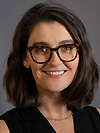 Rorke
Rorke
Catrina Rorke, Climate Leadership Council and Center for Climate and Trade
Lecture Title: "Emerging Pressures on Emissions Accounting: Consumer Preferences, Emergent Regulations, and Novel Trade Measures"
Date: Wednesday, March 26, 2025
Time: Noon to 2:00 p.m.
Location: MGM Grand Conference Center, Room 151
Cost: $75 to receive lunch; purchase your ticket through the TMS2025 registration form. (You may attend the lecture—without lunch—at no cost.)
About the Presentation
Carbon accounting has largely been driven by corporate disclosure efforts and government regulations, like the Greenhouse Gas Reporting Program. An emerging set of pressures is pushing companies toward a new framework for emissions accounting. To serve private sector pressure to decarbonize supply chains, satisfy new regulatory disclosure requirements, and comply with new climate-related trade measures, companies are now exploring broader approaches to firm, facility, and goods-level emissions accounting.
The emergence of trade measures, like the EU Carbon Border Adjustment Mechanism and U.S.-EU Global Arrangement for Sustainable Steel and Aluminum, portend a new reality: to participate in international trade, producers must better understand the emissions within their supply chains.
This talk will discuss these emerging pressures and how they may impact the manufacture, marketing, and trade of light metals. It will also explore an emerging push toward interoperability, which will accommodate the increased interest in supply chain transparency while lightening the compliance burden on manufacturers.
About the Speaker
Catrina Rorke is senior vice president for policy and research at the Climate Leadership Council and executive director of the Center for Climate and Trade. She collaborates with an innovative team of experts and diverse stakeholders to conduct and publish pioneering research, explore innovative policy approaches, and educate policymakers in support of effective, fair, and lasting solutions that lower global carbon emissions.
Prior to joining the council, Rorke founded the energy and environment programs at both the R Street Institute and the American Action Forum. She previously served as a legislative assistant to former U.S. Representative Bob Inglis of South Carolina and staff to the House Committee on Science, Space, and Technology. In her time on the hill, Rorke helped develop the first Republican-sponsored carbon tax bill. She began her career as a presidential management fellow with the National Oceanic and Atmospheric Association.
Rorke has been recognized for her leadership in energy and climate policy by E&E News, The Hill, National Journal, and Grist, and her work has been published in national, local, and trade media. She supports center-right policy work by serving as a board member and advisor to several policy-focused organizations.
Celebrating a Decade of Advances in Sustainable Metallurgy
 Apelian
Apelian
Moderator - Diran Apelian
University of California, Irvine
Date: Wednesday, March 26, 2025
Time: Noon to 2:00 p.m.
Location: MGM Grand Conference Center, Room 253-254
Cost: $75 to receive lunch; purchase your ticket through the TMS2025 registration form. (You may attend the lectures—without lunch—at no cost.)
About the Event
The Journal of Sustainable Metallurgy proudly marks a decade of innovation and collaboration in the field of sustainable metallurgy and invites you to join in celebrating this significant milestone. The journal has been at the forefront of cutting-edge research and transformative ideas, driving progress toward more sustainable practices in the metallurgical industry. This anniversary is not just a celebration of the journal’s journey so far but also a testament to the vibrant community of researchers, practitioners, and readers who have contributed to its success. Speakers will present their views on emerging areas of great impact for the profession, honoring the past while looking forward to the next chapter in a shared commitment to advance the field of sustainable metallurgy. A panel discussion will follow the presentations.
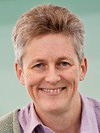 Davis
Davis
Claire Davis
University of Warwick
“Sustainable Steel: Reuse, Remanufacturing and Recycling”
About the Presentation
It is clear that major changes are needed in the steel sector to transition from being a major CO2 emitter to a more sustainable circular material approach. To achieve the ambitious aims, greater reuse, remanufacturing, and recycling of steel products is required alongside the use of novel technologies and green energy, such as hydrogen, to produce iron. Increased efficiencies and alternate fuels are also needed to reduce the environmental impact of blast furnaces, which are still required to meet the increasing world demand for steel. Significant investments in electric arc furnaces are being made in Europe where high levels of steel scrap are available. However, increased recycling of obsolete scrap has implications on composition control with increases in residual elements, such as Cu, Sn, Cr, Ni, that can affect processing and properties. Reuse and remanufacturing require material and product passports, knowledge of a component’s remaining life at the end of product life and options for disassembly and repurposing. This talk will reflect on the trends and changes in the steel sector considering current challenges and opportunities.
About the Speaker
Claire Davis completed her B.A., M.A., and Ph.D. at the University of Cambridge and now leads the Advanced Steel Research Centre at WMG, University of Warwick. She has worked closely with the steel industry throughout her career and held the Royal Academy of Engineering/Tata Steel Chair in Low Energy Steel Processing from 2018 to 2024. Her research interests are the links between steel microstructure-processing- properties as well as non-destructive evaluation of steel microstructures for on-line process control. A current focus is on the role of residual elements, arising from scrap recycling, on microstructure development and properties. Davis is a member of the UK’s Engineering and Physical Sciences Research Council (EPSRC) funded Manufacturing the Future Hub SUSTAIN, which aims to deliver cutting-edge science and the engineering research required to create carbon-neutral, resource-efficient U.K. steel supply chains, and the UK Research and Innovation funded interdisciplinary centre CircularMetal, working towards full metal circularity with a focus on steel and aluminum. She received the Institute of Materials, Minerals and Mining Hadfield Medal in 2019 and was elected as a Fellow of the Royal Academy of Engineering in 2024.
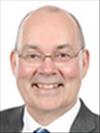 Dreisinger
Dreisinger
David Dreisinger
University of British Columbia
"Sustainability. It Is the Journey, Not the Destination! Lessons Learned Along the Way"
About the Presentation
The materials industry has moved from a perception of unlimited resource availability and a general lack of awareness of the impact of the materials industry on the natural environment to modern times with emphasis on zero waste, renewable energy, low carbon, and an overall approach to circularity. Sustainable processing is the new mantra of the materials industry. This presentation offers a few reflections on lessons on life on the road to sustainability from a personal and career perspective.
About the Speaker
David Dreisinger completed his B.A.Sc. and Ph.D. in Metallurgical Engineering at Queen’s University at Kingston. Since 1984, he has worked at the University of British Columbia in Vancouver, Canada, and holds the position of Professor and Chair, Industrial Research Chair in Hydrometallurgy. Dreisinger and his students and colleagues have published over 300 technical articles and have actively taught short courses and seminars to the metallurgical community over the last 35 years.
Dreisinger has worked closely with industry to develop and commercialize technology. He is currently working on commercialization of technology in the extraction of battery materials and other critical materials with a focus on carbon negative processing and production of by-products that contribute to decarbonization of other industrial sectors.
He has received a number of professional awards including the Sherritt Hydrometallurgy Award (METSOC), the Extraction & Processing Division Science Award (TMS), the Wadsworth Award (TMS), and the INCO Medal (CIM). Dreisinger is a fellow of CIM, Engineers Canada, the Canadian Academy of Engineering, and was elected a member of the U.S. National Academy of Engineering in 2023.
Award Lectures
Extraction & Processing Division Distinguished Lecturer
Date: Monday, March 24, 2025
Time: 8:40 a.m. to 9:20 a.m.
Location: MGM Grand Conference Center, Room 364
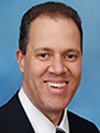 Powell
Powell
Adam Powell
Worcester Polytechnic Institute
"Energy-Intensive Metal Processing in the Age of Low-Cost Intermittent Renewables"
About the Presentation
Design of new electrified and decarbonized metal production processes intended for large-scale operation have an opportunity to use intermittent solar and wind electricity as the new lowest-cost generation technologies. Intermittency can be partially mitigated by batteries and other energy storage, but an economically optimal electrical grid will inevitably have excess energy at some times and shortages at others. This talk will describe an optimization framework and algorithm for determining the best times of day and parts of the year to run, considering startup and shutdown costs as well as variable electricity price. It will discuss application of this algorithm to Flow Electrolysis, an aqueous electrolytic iron powder production process operating at 80-100ºC, and molten salt electrolysis for reduction of magnesium oxide around 1000ºC. We show that in this new electricity generation landscape, low capital cost and flexibility can be more important than energy efficiency.
About the Presenter
Adam Powell
William Hume-Rothery Award
Date: Monday, March 24, 2025
Time: 8:40 a.m. to 9:10 a.m.
Location: MGM Grand Conference Center, Room 357
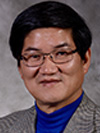 Chen
Chen
Long Qing Chen
The Pennsylvania State University
"Thermodynamic Basis for the Phase-Field Method of Microstructure Stability and Evolution"
About the Presentation
Phase-field method is a density-based approach for simulating the temporal microstructure and property evolution in materials undergoing nonequilibrium processes. The focus of the presentation will be on discussing its thermodynamics basis. It will start with introducing a modern version of the first law of thermodynamics and the corresponding fundamental equation of thermodynamics, which allows us to identity the independent thermodynamic variables, the driving forces for phase evolution and other materials processes, and the connections to the properties of nonequilibrium systems. It will be followed by a discussion on the thermodynamics of microstructures involving long-range elastic, electrostatic, and magnetic interactions and the short-range chemical interactions responsible for interfacial energy. It will be demonstrated that all familiar partial differential equations describing the relaxational or dynamical, thermal, mechanical, chemical, and electronic processes and the accompanying microstructure evolution can be derived from the rate of potential energy dissipation based on linear or nonlinear kinetics.
About the Presenter
Long Qing Chen
Institute of Metals/Robert Franklin Mehl Award
Date: Monday, March 24, 2025
Time: 8:35 a.m. to 9:15 a.m.
Location: MGM Grand Conference Center, Room 162
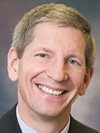 Was
Was
Gary Was
University of Michigan
"Answering the Challenge to Rapid Qualification of Core Materials for Advanced Reactor Designs"
About the Presentation
Radiation-induced degradation of materials properties is the showstopper for advanced reactor concepts, making licensing of designs without data on the performance of core structural materials the biggest challenge to deployment. Industry is facing the prospect of not being able to acquire the data they need to support license applications because of the lack of test reactor availability and the amount of time it takes to obtain the required data. The solution to this obstacle to rapid deployment is ion irradiation in combination with advanced characterization and predictive modeling. This talk will describe the development of a predictive tool that incorporates ion irradiation and computational materials modeling to determine the microstructure and mechanical properties of core structural materials, benchmarked against reactor data, and codified in ASTM standards, thus providing licensees with a justification of the efficacy of their core material performance in their safety case to the regulator.
About the Presenter
Gary Was
William D. Nix Award Lecturer
Date: Wednesday, March 26, 2025
Time: 8:30 a.m. to 9:30 a.m.
Location: MGM Grand Conference Center, Room 170
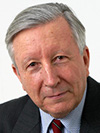 Langdon
Langdon
Terence Langdon
University of Southampton
"Investigations of Flow Mechanisms in Crystalline Solids with an Emphasis on the Role of Grain Size"
About the Presentation
An understanding of the flow behavior over a range of experimental conditions is a critical requirement in developing, and ultimately using, crystalline materials in structural applications. This presentation examines the flow mechanisms occurring in metals under high temperature creep conditions and then extends the analysis to the creep of ceramic materials. The grain size is an important parameter in governing the flow behavior, and these properties became important over the last thirty years with the development of new processing procedures that permit the fabrication of metals with submicrometer or even nanometer grain sizes. These ultrafine-grained materials have become especially important with the realization that they provide the potential for using superplastic processing for industrial applications at strain rates that are exceptionally rapid by comparison with more conventional superplastic materials.
About the Presenter
Terence Langdon
Emerging Professional Award Lectures
Young Innovator in the Materials Science of Additive Manufacturing Award Lecture
Date: Monday, March 24, 2025
Time: 4:45 p.m.
Location: MGM Grand Conference Center, Room 120
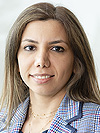 Moridi
Moridi
Atieh Moridi
Cornell University
"Unlocking the Hidden Potential of Additive Manufacturing: Microstructure Control and Material Innovation"
About the Presentation
Metal additive manufacturing (AM) presents unprecedented opportunities for microstructural engineering and material innovation by leveraging the non-equilibrium conditions intrinsic to the process. This talk outlines three strategies for harnessing the unique thermal and dynamic environments of AM to develop advanced materials tailored for specific applications. First, we demonstrate how manipulating phase stability in high-entropy alloys (HEAs) refines grain structure through the formation of metastable phases during solidification. Next, we investigate alloy amalgamation in AM to create hybrid titanium alloys with tailored properties. This approach utilizes rapid solidification and limited diffusion to achieve distinct phase coexistence, unattainable through conventional methods. Finally, we explore the potential of natural mixing effects in AM, driven by Marangoni convection, to process immiscible systems like Fe-Mg, thereby enabling tunable degradation kinetics for biomedical implants. Together, these studies highlight the transformative potential of AM in controlling microstructural evolution and expanding the material design landscape.
About the Presenter
Atieh Moridi is an assistant professor in the Mechanical and Aerospace Engineering Department at Cornell University. In recognition of her significant contributions to the field of additive manufacturing, she was recently appointed as the Aref and Manon Lahham Faculty Fellow in the College of Engineering. Prior to her current role, she worked as a postdoctoral fellow at the Massachusetts Institute of Technology in the Departments of Mechanical Engineering and Materials Science and Engineering. She earned her Ph.D. cum laude (the highest institutional honor) from Politecnico di Milano, Italy. Moridi co-organized the TMS Diversity Summit in 2022 and has been a co-organizer for the Alloy Design for Additive Manufacturing symposium at TMS for the past five years. She has received several honors, including the National Science Foundation CAREER Award, Office of Naval Research Young Investigator Award, Department of Energy Early Career Award, TMS Early Career Award, and Johnson & Johnson Scholars Award.
Emerging Professionals Tutorial Lecture & Luncheon
Date: Tuesday, March 25, 2025
Time: 1:15 p.m. to 2:45 p.m.
Location: MGM Grand Conference Center, Room 253-254
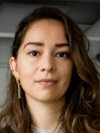 Charpagne
Charpagne
Marie Charpagne
University of Illinois
"Pathways to Finding Your Own Driving Force as a Materials Scientist"
About the Presentation
Self-doubt, lack of motivation, imposter syndrome, thinking about giving up on your academic journey. These are all normal feelings that will very likely arise more than once during one’s professional development. While we have been raising awareness about these, practical solutions on how to overcome them are still lacking. My research aims at designing structural alloys, where strength is the most important property. There are many ways to design stronger alloys, broadly accepted as core principles in physical metallurgy, each with their own driving force. However, there is no simple method to finding your very own strengths and driving forces as a person. Most young professionals are in fact usually very unaware of their own personal qualities. This talk is meant to help you find ways to reveal your inner driving forces and channel them into unique soft and technical skills that can help you gain confidence and stand out in a professional setting. As a first-generation student, someone who completed classical music training alongside science, and who immigrated to the U.S. alone, I have doubted myself and my choices many times. This talk is not about myself nor my journey but will instead introduce ‘self-motivating’ techniques that I learned along the way. From taking inspiration in role models, reflecting on your achievements, getting involved in societies that give you a sense of belonging, to challenging yourself; these techniques apply to everyone and can help you regain strength on your own in moments of doubt and help you grow on personal and professional levels.
About the Presenter
Marie Charpagne
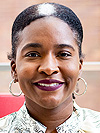 Murphy-Leonard
Murphy-Leonard
Aeriel Murphy-Leonard
The Ohio State University
"Exploring the Impact of Complex Metallic Alloys on Enhancing Fatigue Resistance and Educational Opportunities in Marginalized Communities"
About the Presentation
Over the past ten years, the field of materials science has seen a surge of interest in microstructurally and compositionally complex metallic alloys (MCCAs). This enthusiasm stems from their potential to achieve unparalleled levels of strength and flexibility, outstanding corrosion resistance, and superior overall performance. The endless opportunities for exploring both new and established alloy systems that present a unique blend of material characteristics have sparked significant research activity across various domains. This category encompasses a broad spectrum of alloys, including: 1) multicomponent alloys, notably high entropy alloys (HEAs), 2) materials consisting of secondary phases with varying morphologies and compositions, and 3) alloys characterized by complex deformation behaviors, such as those undergoing distinctive phase transitions akin to those observed in TRIP/TWIP steels, or materials with a limited number of crystallographic slip systems like Mg and Zr. To unravel the intricate connections between the structure and properties of these materials, a specially tailored multi-modal approach is utilized, leveraging advanced techniques ranging from scanning transmission electron microscopy to high-energy X-ray diffraction microscopy. In this presentation, I will demonstrate how employing advanced microscopy techniques facilitated the identification of a novel phase in a well-established Cu-based alloy, which was processed using additive manufacturing. The orientation of this phase within the matrix led to unusual dislocation activities that improved the mechanical properties of the material, illustrating how varied processing methods can lead to unique microstructures and precipitation behavior in mature material systems. Furthermore, I'll explore how alterations in the nucleation and growth of strain-free grains during recrystallization can significantly transform the crystallographic texture, thereby enhancing resistance to crack initiation under fatigue conditions. My focus will be on demonstrating how in-situ techniques provide a detailed mechanistic insight into the microstructural evolution in real-time and under actual operational conditions. Moreover, this presentation will address how advanced manufacturing contributes to social sustainability by offering access to education and training programs in marginalized communities, thereby fostering inclusivity and empowerment. I will showcase how direct collaborations with organizations across the African continent and with historically black colleges and universities (HBCUs) in the United States are instrumental in developing a highly skilled workforce that encompasses diverse perspectives.
About the Presenter
Aeriel Murphy-Leonard
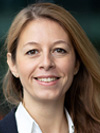 Giuntini
Giuntini
Diletta Giuntini
Eindhoven University of Technology
"Merging Fields and Perspectives: Multidisciplinarity and Internationalization in Materials Science"
About the Presentation
A career in materials science provides the unique opportunity to explore many diverse worlds, physical and conceptual – an opportunity I have fully embraced. My home country, Italy, gave me strong theoretical foundations, a Ph.D. in the U.S. boosted my self-confidence and independence, a postdoc in Germany led me into the wonder-world of multidisciplinary collaborations, and as a faculty member in the Netherlands, I am exploring ever-new avenues for industrial, societal and sustainable impact. At the same time, my research portfolio grew in both breadth and depth, stretching from mechanics to chemistry and physics, and diving into the complexity of advanced materials design and manufacturing. My work on the development of new multiscale ceramics and ceramic-based materials stems out of both the knowledge and the methodologies learnt throughout these experiences. There is widespread agreement that the future of science lies in cross-disciplinary teamwork. Data on the impact—scientific, industrial, and societal—of new discoveries confirms it. In this lecture, I will show how embracing a broad spectrum of perspectives on a scientific challenge can lead to unexpected discoveries, how diversifying research approaches paves the path towards multifunctional materials, and how bursting one’s comfort bubble pays off by building both resilience and creativity. I will provide examples from the field of multiscale materials design, processing and modeling. Ultimately, merging one’s diverse experiences and fields of knowledge is key to creating a unique research niche, and fostering a stimulating and rewarding academic career.
About the Presenter
Diletta Giuntini
Korean Institute of Metals and Materials (KIM) Young Leaders International Scholar
Date: Tuesday, March 25, 2025
Time: 4:10 p.m. to 4:40 p.m.
Location: MGM Grand Conference Center, Room 166
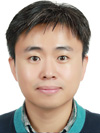 Sim
Sim
Gi-Dong Sim
Korea Advanced Institute of Science & Technology
"Aluminum-Carbon Thin Films with High Strength and Ductility"
About the Presentation
This presentation reports the exceptional mechanical properties of aluminum-carbon (Al-C) thin films deposited by multiple source co-sputtering. First, a high-throughput combinatorial approach was taken to investigate mechanical and electrical properties of a blanket of Al-C thin film deposited with a compositional gradient. Hardness increased along with carbon addition, but at the cost of reduced electrical conductivity. These measurements allowed rapid screening of Al-C films and showed that regions with ~ 6at% carbon possess a good balance of mechanical and electrical properties (2.8 GPa and 142 Ω⋅nm). Micro-tensile experiments of freestanding Al, Al-C 6.4at%, and Al-C 10.3at% films were conducted to acquire tensile properties and understand the strengthening mechanism. Al-C films with 6.4at% and 10.3at% carbon both exhibited significantly increased yield stress over 300 MPa while retaining ductility. In addition, an upper yield followed by drop in stress was observed in Al-C thin films, which implies the formation of the Cottrell atmosphere.
About the Presenter
Gi Dong Sim
Japan Institute of Metals and Materials (JIMM) Young Leaders International Scholar
Date: Wednesday, March 26, 2025
Time: 11:45 a.m. to 12:15 p.m.
Location: MGM Grand Conference Center, Room 365
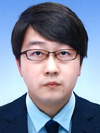 Karube
Karube
Shutaro Karube
Kyoto University
"Spin Current Generation Driven by Altermagnetism and Its Spintronic Applications"
About the Presentation
Altermagnetism is a novel “ferroic” magnetism proposed by Šmejkal et al, which achieves spin splitting, even in an antiferromagnet due to its specific crystal structure. This results in the generation of a spin current with spin polarization dependent on the Neģel vector interestingly. This phenomenon is referred to as the spin-splitter effect (SSE), leading to the generation of novel spin current, compared with spin Hall effect (SHE). We have observed the unconventional generation of spin current in an altermagnetic RuO2(101) with spins of all -, - and -polarizations depending on crystal orientation (applied current direction). This observation was made using spin-torque ferromagnetic resonance technique in an adjacent NiFe alloy layer at room temperature. From the perspective of Neģel vector-dependent polarization, this feature is in good agreement with the proposed theory of SSE. Furthermore, we have achieved field-free magnetization switching in a neighboring Co layer with perpendicular magnetization using a -polarized spin current driven by SSE in RuO2. Thus, we have experimentally observed the SSE and demonstrated its utility for spintronic applications. In this presentation, I would like to provide more detailed information on the properties of altermagnetism and the actual experiments related to exotic spin current generation with comparison to conventional SHE in spintronics.
About the Presenter
Shutaro Karube